As Huffpost Contributor Platform Shuts Down, I Say: Thank You
As a Huffpost contributor, I can honestly say it's a sad day, no matter how rational or reasonable the decision is.
You may have heard that the Huffpost contributor platform was shut down today. For writers like me, it's a sad day. This platform allowed writers both big and small to write pieces and post them on Huffpost's website. From there, Huffpost reviewed posts and decided which to categorize, promote, and share with the world. Over the past year, I've been fortunate to have many articles promoted, including on the front page. It's been a wild ride that I'm so sad to see end. My journey with Huffpost began over a year ago with an article called"Prince Charming Doesn't Exist." On a whim, I emailed Ms. Arianna Huffington herself to pitch my article about love and marriage. I was new to blogging and the world of news. I was a published author who wanted to spread my message about simple romance, about real romance. Arianna gave me that chance, complimenting my piece and giving me an in to the Huffpost Contributor Platform. I was ecstatic. Over the years, this platform has meant so much to me, a small writer trying to share her words. I've been able to open myself up to the world and to share ideas with so many. I've written about being a childless adult, married life, simple love, teaching, and so many other topics. I've learned how to interact with others online, how to improve my writing, and how to connect. I want to say this above all today: I am forever thankful to Huffpost for this opportunity. You allowed me to grow as a writer. You helped me find confidence in my voice and my message. You gave me more than just a platform to share my ideas--you gave me faith in myself as a writer that I had ideas worth spreading. I will forever be grateful for every article you promoted, every front-page placement, and every opportunity to share my words. I won't lie... I'm devastated that starting today, my sharing of words will look different. I was always proud to see the Huffpost emblem on my words. Still, I know all is not lost. I have the confidence to go forth and share my writing, to talk about what matters to me, and to share my visions. I will just have to find a new place to do that. So again, thank you Huffpost for the opportunity and for the platform. I'm sad to see it go, but I know all change is hard. Who knows what opportunity this will bring next for you, for me, and for all of the other contributors who called your platform home for years. Xoxo, Lindsay Detwiler, Author
0 Comments
Romance Writers: Here's How To Be Successful
I write sweet romance.
I’ve been a published romance author for almost three years now, but I’ve spent most of those years trying to shrug off this sentence, to run from it. I’ve tried to make my descriptions of what I write more sexy, more risqué, and I’ve sometimes tried to portray my work as something it just isn’t. I’ve spent countless hours trying to figure out how to sell my fade-to-black romance as something more marketable. I’ve attempted, at least mentally, to worm my way into the most popular segments of the genre only to find myself not quite fitting. It’s not that I’m ashamed to write sweet romance. It’s just that for most of my career, I’ve found myself in a defensive position of my writing. It is through these defenses, however, that I’ve learned a lesson valuable to any writer, but especially to those in the romance genre. Taking Heat For Not Turning Up the Heat
I didn’t start my writing journey determined to focus on sweet romance; it just sort of happened. When I put my fingers on those keys and drafted my first novel, sweet romance just flowed out.
I could attribute my sweet romance and lack of sex scenes to many things. Perhaps it was my love of Nicholas Sparks that encouraged me to write books focused on the emotional side of relationships. Maybe it’s that my introverted, conservative personality never allowed conversations about sex to be quite comfortable. Or maybe it’s partially the fact that as a high school teacher, I knew I didn’t want to have to blush knowing some of my students were reading those scenes. Whatever psychoanalysis we want to attribute to the cause, I know the outcome is that my works are lacking in the hot sex-on-the-page sort of scenes. It’s not that my characters are chaste or that I can’t appreciate the value of sex in romance. I truly do. I think we all have our preferences when it comes to spice in our novels, though, and I believe there’s a place for all types of heat levels in the romance genre. Regardless, I’ve found myself “taking heat” for my notable lack of heat. Over the years, I’ve heard comments about the lack of sex in my books and the disappointment over the lack of physicality. The words “sweet romance” seem to incorrectly conjure images of cheesy, unrealistic scenes where everyone is constantly happy, and life is perfect. I’ve been accused of skipping crucial segments of the genre. Again, I get that and appreciate the value of those comments. We each have our preferences and our tastes. These are the greatest gifts literature gives us—stories to fit everyone’s desires and the freedom to critique the stories that don’t speak to us. As an English teacher, I try to impress upon my students the idea that every single book has value, even if it doesn’t strike a chord with you. Nonetheless, for so long, I’ve had a hard time appreciating the value of my own work. Daunted by a market that is seemingly owned by books with heat, I’ve questioned my writing. I’ve felt the “sex sells” society values creeping in on me. I’ve questioned what could happen if I just jumped the “no sex” hurdle. I’ve tried in my drafts to be sexier and more risqué. I’ve considered crossing that not-so-invisible divide within the genre. And you know what? It didn’t feel right. At all. It was with my last release, which is perhaps one of my sweetest romances, that I realized one important thing: Your own truth is the one you should value when it comes to your writing. For me, that truth is that I am a sweet romance writer. I will never fit into the Fifty Shades kind of world in the romance genre, and that’s not a bad thing. It is only when I had this epiphany that I realized my own value as a writer and the worth of my stories. It was when I came to terms with exactly who I am as a romance writer that I could better appreciate my successes and stop focusing on what I am not. Write Your StoryIt’s not just sweet romance that is marked by incorrect stigmas. At several book events recently, I’ve seen the other side of the spectrum. When I mention the word “romance,” I see a shriveling of the nose accompanied by one of the following statements:
Through these comments I realized: No matter what type of romance you write, spicy or sweet, you’re going to have critics. You will never suit everyone’s tastes. And you know what? That’s perfectly okay. As romance writers, we cannot measure success by what’s popular or what the market demands. We can’t base the heat level of our book on marketing trends or on variables like reader preference and opinions of strangers. At the end of the day, we must learn to value our own instinct, our own passion, and our own voice. We must learn to be true to our stories and characters. We must write in the way we are called to write. We must tell the stories we yearn to tell in exactly the way we want to tell them. It is only when we learn to listen to our own voices and let our guts be our guides that we can truly reach success in the genre. So sweet or spicy, sex or not, learn to write the story that speaks to you, and the rest of this arduous but rewarding writing journey will lead you to the exact point you are supposed to be. Lindsay Detwiler is a contemporary romance author with Hot Tree Publishing, a contributing blogger for The Huffington Post, and a high school English Teacher. To celebrate sweet love, visit her on Facebook. Measure Book Signing Success by Experience, Not Sales
For many authors, the thought of seeing your name on the sign at Barnes & Noble for an author event is the thing of wild dreams. I am no different. From the time I first started dreaming about getting published, I wanted to be on that sign. I wanted to have people coming to buy my books, lining up to get an autograph. I wanted my J.K. Rowling moment.
Over the years, I've been fortunate enough to live out my Barnes & Noble dream (minus the J.K. Rowling status) several times. What's more, I've been able to travel to all sorts of amazing places for author events and get that moment to celebrate my works. This year, especially I've been branching out. We traveled to Gettysburg Book Warehouse last weekend and are heading to State College in July. We'll also be heading to Virginia for a Book Festival this fall. We're traveling and seeing new places. For my husband and I, who are self-proclaimed Netflix junkies and homebodies, traveling is pushing us out of our comfort zone. But I've come to realize it's a good thing. However, there's just one problem most indie authors find with book signings: Sales aren't typically J.K. Rowling status or even close. In fact, for some authors, the dreamed of book signing can become the thing of nightmares, leaving you feel like a failed writer. So how do you balance your dreams with reality, and are book signings worth the risk? Absolutely. * some successful. some in a monsoon. Some where I left in tears. Measure your success by the experience. Gettysburg: fun Winchester Virginia Places and met people I'd have never met. Writing journey isn't all about sales. It's about growing as a person and about meeting new people. It's about seeing how your words can affect others and about meeting new people. Break the introvert mold. Readjusting Book Signing Measures of Success
I have had plenty of successful signings where I sold more copies than I expected.
I have, in truth, also had the exact opposite. I had a book signing where I sold exactly two copies, both of which were friends. I had a book fair in a practical monsoon where we traveled three hours to sell two books and get soaked to the bone. I've had plenty of tears over book signings that many would deem unsuccessful. However, two years into my writing journey, I've come to learn that success should not be measured by sales at a book signing. That's not what author events are about. In fact, that's not really what the writing journey is about. Okay, sure, we all want to sell millions of copies and retire to a private island. However, this shouldn't be your driving force. The writing journey is about growing as a person. It's about meeting new people and seeing how your words can affect others. It's about sharing your story, your characters' stories, and your personal truths. It's about breaking the introvert mold and learning how you impact others. Book signings are a way for you to meet others, to share your story, and to inspire others to attack their dreams. Because of my book signings, I've had more experiences in the past two years than I could've dreamed of. I've seen amazing bookstores. I've met new people. I've seen cute shops and awesome attractions along the way. Most of all, I've had the chance to share in the experience with my husband. The memories we've made will last a lifetime...or at least until the next signing. So to you indie authors out there wondering if book signings are worth the risk of standing alone at a table with pitying looks from strangers, I can tell you... it is. Because every person you meet can affect your writing journey. Every signing, good or bad, becomes a part of your story. Every experience gives you the chance to grow, to change, and to evolve into the writer you were meant to be. Yes, You Absolutely Should Read Books You Hate
James Joyce once said, "Life's too short to read a bad book."
I couldn't disagree more. Sure, our goal is ultimately to pick up that novel that will speak to us, that we will rave about for months if not years. We all want to read books that we feel are 5-star books, that touch our souls. But does that mean that we should completely discount the books that we don't like, the books that we would be more likely to one-star? I don't think so. In high school, I had an amazing English teacher who constantly halted our whining about hating books in the curriculum by reminding us that every book has value. Every piece of literature that makes it through the publishing process has something to offer: It just takes a dedicated, literature-savvy person to understand this and to find one thing to cling to. Furthermore, we talked about how literature we hate can sometimes teach us more about ourselves, our values, and our perspectives of writing than the books we love. As a bookworm, a high school English teacher, and an author, I've come to realize that even, and perhaps especially, the books we hate have intrinsic value. So the next time you come across a book you don't like, don't think of it as a waste of time. Don't promptly close the book and chuck it under your bed. Challenge yourself to think about the benefits you get from literature you don't particulary love. The Reader's Perspective
As a reader, I've found it helpful to ask myself the true reasoning behind my hatred for a particular book. Is it the characters' values that causes me to pull back? Do I have an issue with the plot, the theme, or the topic? Or is it simply that the writing style has lost my interest?
Taking a step back from the book and really forcing yourself to dig into the true reasons behind your dislike can teach you about yourself. For me, one of the books I strongly disliked was (*here come the gasps*) Fifty Shades of Grey. I found myself not wanting to finish the book. However, when I really analyzed my feelings, I realized the problem was that I did not like Christian Grey. He stood for the alpha-male I do not find attractive, and I found him to be belittling. I also found Anastasia to be very weak and easily controlled. This is not a reflection of the book's value. In fact, I would say I still got value from the book even though it wasn't my cup of tea. The value didn't come from an emotional connection to the book or my raving about it. Instead, the value was more intrinsic. I learned about myself and what I value in relationships, something certainly worth my time, even if the particular story didn't speak to me. We all have books we don't like, which is perfectly okay. It would be quite 1984-like if we all liked the exact same books all of the time. We all carry our own experiences, beliefs, values, and ideals into our reading experiences. The challenge, however, is not to shy away from books that we aren't into. It's to really dig deeper and figure out why. Most of all, it's to dig deep enough to find something of value, something you can appreciate in the pages. The Teacher's Perspective
Perhaps this was the biggest motivator for this article--my job as an English teacher in a high school. Lately, I've heard so many students say, "Oh, I didn't finish the book because I just didn't like it," or, "My essay wasn't good because the book wasn't good."
I can remember being a student and reading books that just seemed so distant to me. No matter how hard the teacher tried, the world of Shakespeare, the "universal themes" of Lord of the Flies just seemed so foreign to my own life. How could I possibly read something I didn't connect with? It is years later, though, as a teacher, that I can appreciate the value of the books I read and didn't like. First, it taught me endurance. There will be, in real life, things you have to read that you don't want to--real estate forms, tax forms, text books. Learning to look beyond my emotional feelings toward a book and muscle through readied me for these experiences. The value for students, however, is much deeper than this. Pushing through and reading books you don't particularly love can, as I said, teach them about their own values. I find that many students struggle to realize they don't have to agree with every message the author sets up in the book. In fact, for teenagers, the value of literature comes in the questioning. Do you agree with the message? Do you agree with the characters' actions? Why not? Reading books they dislike helps them form a sense of self and a sense of opinion. By reading things they don't necessarily like or find boring, they can strengthen their awareness of what they do like and find interesting. It's all about self-awareness. It's also about teaching them appreciation. As my AP Literature teacher taught me, everything in literature has value. Even if it is a single line you can agree with or a single line you can say, "Wow, that is well written," your goal is to find it. It teaches students to be able to appreciate the beauty, the goodness, even in things they don't like. Furthermore, it teaches them to appreciate hard work and diversity. Finally, sometimes the books teenagers don't like are just stored ideas for later. Some books I didn't like in high school stuck with me. Later in life, I found that I could connect with them or understand them. Sometimes the classics we read in English classes set us up for the realities of the world later, some of which we aren't quite ready for in high school but are glad we read later in life. The Writer's Perspective
One of the hardest things to accept as a writer is that not everyone will love your books. In fact, some people will hate them. Some people will voice this hate.
However, I've come to appreciate that hate for a book, even if it is one I wrote, isn't necessarily a bad thing. It means that I've stirred something in the reader, which is the ultimate goal. Sure, I'd certainly like to only stir good, rosy reviews of my works. Nonetheless, the fact that someone doesn't like my book doesn't mean I've failed as a writer. It simply means my style, my words, are not for that person. As a writer, you can sometimes learn from the opinions of those who don't like your work. Although a part of being a writer is knowing when to take criticism to heart and when to stick to your gut instincts, continual criticisms can give you guidance toward improvement. Sometimes our biggest critics teach us the most valuable lessons and help us fine-tune our craft. Every Book Is Valuable
So whether you adore a book or hate it, the value is still there. Each piece of literature has the capability to teach us something about ourselves, about story telling, and about the world around us. The next time you find a book you don't like, take time to really delve for a sense of appreciation before just discounting it.
Reading is a journey that teaches us about ourselves, good or bad. Thus, everything we read offers us the benefit of self-discovery. How about you? Are there any books you have read that you didn't like but taught you something? Share below! There are loads of people who think they can write novels, sing, dance, or even paint, but the thing is having the creative desire to do so doesn’t make you an artist. I had a friend who dreamed of becoming a writer, but he couldn’t even make it to the half page of a school essay. He realized thereafter that writing wasn’t really for him. Just like him, there are many people who are ready to take out their pen and paper, that doesn’t mean they’re going to write something anytime now. It’s also the same with other types of art. When someone tries to sing, write or take on the dance floor, they might be able to get some of the lyrics and tunes. They might be able to get some of the dance steps right, but that doesn’t mean that they could do it in a creative way like dancers do. They might be able to write a few paragraphs but doesn’t mean that it’s going to make sense. Writing, just like most creative areas, is half art and half science. People might be able to hire an expert to teach them a few tricks, but that wouldn’t do much to help them become the writer or artist they truly aspire to be. It might give them a few points, but there is only one way to become a writer, and that’s by going through loads of failure. Writing isn’t just a matter of words. It’s more about the art of using them in such a way that it stirs human interest. And to do that, one needs experience. Even one of the world’s greatest writers such as Vladimir Nabokov went through a harsh rejection when he first submitted “Lolita” to Knopf. But guess what? Later on, his piece sold about fifty million copies. So, even if you think you’re a really fantastic writer, you’re still bound to receive criticisms from people, perhaps even some mockery. Not to worry, though. It’s all just part of the whole process. Anyhow, let’s dig on some of the writing advice from great writers. After all, we’re all going to tear into the publishing industry anytime now, so let’s might as well be prepared. “The first draft of anything is shit.” - Ernest Hemingway Some people imagine writing a novel and turning it into a publishing firm the next day. Well, the process is actually more complicated than that. The first draft is only the preface of the whole writing process. There are 5 kinds of drafts in the writing process: (1) the junk draft (2) the structure draft (3) the rough draft (4) the surgery draft (5) and the last draft. The junk draft is as you guessed is the first draft. It’s not surprising to find loads of typos and errors here. After all, not even great writers can perfect their craft during the first try. The structure draft is the part where you’ve managed to read your junk draft for the first time and realized that there was something wrong with the order. It didn’t quite make sense, and so you decided to restructure the idea flow. The rough draft is when you already have something that’s a work in progress. This when your piece is already in good shape, but you still need to work on some of the parts. The surgery draft is when you already removed some bits and excess from your piece that might sway the reader from the real essence of the story. And finally, the last draft! Your story isn’t for you. It’s for the people who will be reading it. This is when you already asked some people to read your manuscript and ask for feedback. Your story isn’t for you. It’s for the people who will be reading it. So, you see? There’s no harm in reviewing the first draft before making it your final piece. If you’re just going to write a book any anyway, make it the best. “You can’t wait for inspiration. You have to go after it with a club.” – Jack London I know loads of writing enthusiasts who are dying to write their first book. They never did. Why? They keep on waiting for that grand inspiration that’s going to tell them the plot to their story. Look, it’s true that sometimes inspiration just hits you like a ton of bricks, but these instances are so rare that you’d be waiting your whole life, and you still won’t have your book yet. Writing prompts and inspirations aren’t magic, and riders aren’t magicians either. Writing is a skill. You have to go and work for it. If you really want to write a book and then you’ve got to work for it too. That being said, you can’t just wait for some random inspiration to hit you right in the face and tell you what to write about. You have to go and decide for yourself what to write about, and then from there, you can start seeking ways on how to write it. There are three rules for writing a novel. Unfortunately, no one knows what they are. ― W. Somerset Maugham People who want to be good at writing thinks that they can be better by asking experts to teach them their tricks, but it’s just like what I’ve said in the beginning of this article: writing is half art and half science. It’s true that you won’t make it far as a writer if you don’t know how to use proper grammar, or if you don’t the exact words to use, but the thing is you won’t make it far either if you only arm yourself with writing technicalities. Most of the aspects that make up writing have something to do with creativity. That’s something you need if you want to succeed in the writing industry in the long run. But creativity isn’t something you can learn overnight. Nor is it something you can purchase from the grocery store. Creativity is art. Creativity is developed, and you do so by looking for your inner writer. Having a good potential as a writer doesn’t mean that it’s going to be easier for you in the process. Sure, you might already know the basic technicalities of good writing, but you’re still going to go through the same struggle that every writer is supposed to go through. It’s the only way for you to grow as a writer. Joe Baldwin is a native US resident & professional Article writer for https://essaylook.com. He studied English literature and creative writing. He has experience with online web content including blogs, web page content, news, public relations, press releases, and long form sales and industrial presentations.
Writer's block. Two simple words that conjure horror-like images and feelings in any writer. The thought of the ideas ceasing to flow, the words not sitting right on the page--it's terrifying. The worst part about it is it can come at any time...and sometimes it feels like it will last forever. Writer's block is something you can choose to overcome, however. Whether you're a blogger, a novelist, or an aspiring author, there are simple ways I've found to beat the block. 1. Go for a walk.I heard many authors talk about this and thought it was rubbish...until I tried it. There's something about fresh air and quiet that stirs the creativity. I've had some of my best ideas developed while walking, and I've solved many plot holes during a stroll with Henry. Get out of the house and take in the peace and quiet. You'll be surprised--sometimes the ideas you need are there already. You just need a space to listen to them. 2. Switch to another work.When I feel myself losing steam on a novel, I'll briefly switch to an article, a blog post, or even a short story. Sometimes mixing the genre up can help, too. Just make sure you don't take too long of a break and you do go back to it. Sometimes setting it aside for a short period of time, though, can jog your creativity. 3. Talk about your plot holes/ issues with a trusted friend.Sometimes writer's block happens just because you have a difficult plot situation or issue to deal with. Writer's block is our way of putting the problem aside because we don't know how to fix it. I've found talking through the plot can sometimes lead to an idea. My husband is not a writer or even a reader. However, I've solved many plot issues and got "unstuck" on a story just by talking about it with him. Sometimes a person who isn't deeply involved in the writing can help you see a solution you couldn't. It is hard to be objective as a writer--we are our own worst critics. A fresh eye might or listening ear may be able to help you overcome doubt and confusion, which can ultimately help you beat writer's block. 4. Read a book.If you can't write, do the next best thing--do some reading. I think of each book I read, no matter what genre, as research and skill building for my writing. Every book teaches me new techniques, new styles, and new ideas. It's nice to step into the reader's perspective now and then. So take a break from your writing and do some reading. You might just find it inspires you to get back to it. 5. Keep your goals in mind.When I get frustrated and want to succumb to writer's block, I think about my writing goals. I think about all of the successes I've had so far, and I usually get inspired to push through.
Writer's block can be crippling. It can make you question your dedication, your skill, and even your reasons for writing. However, keeping a bulletin board with your goals, dreams, and writing aspirations can help you remain focused. Writer's block happens to all of us. It is the truly dedicated author, however, who can push through to get to the other side. If you still need inspiration, check out this guide from NYT bestselling author Jerry B. Jenkins. It will help you get past writer's block for sure! Lindsay Detwiler is the author of five contemporary romance novels, a contributing blogger for The Huffington Post, and a high school English teacher. Visit her on Facebook or email her at [email protected]. You've achieved that goal--you have your first published work! And now, a second dream is coming true--your first book signing or author event. It's thrilling to see your hard work pay off and your dreams come true. Seeing the sign on the door of your venue or bookstore is surreal. However, once the shock and excitement wears off, you might have one big, daunting question: What the hell do you do now? I can remember seeing my picture on my local Barnes & Noble for my first book signing. In some ways, I couldn't rationalize that it was actually my picture. It felt like a dream because it had been a goal for so long. Once I got over the initial shock, though, panic set in. I didn't feel like a "real" author. I had no idea what I was supposed to do at a book signing. What if people showed up expecting a "real" author smoothly talking about plot arcs and characterization? Or even worse, what if no one showed up at all? Luckily, I had an amazing team of support to quell my fears, to offer me a Pepto Bismol when I felt like I was going to vomit from nerves, and to make sure I wasn't sitting all alone at a lonely, empty table. My first event went so well, and over the past few years, I've found myself getting less nervous for author events. I'm still no expert. I still have my socially awkward "What do I do?" moments. I still shy away from the spotlight and lack confidence I should have in my salesmanship. Nonetheless, over quite a few author events, I've learned some tips I wish I had known when I first started. 1. Take a team who know your books with you.Especially if you're on the introverted side, pitching your work to strangers can be intimidating. There are so many sales' techniques that go into a book writing career. You do have to be able to sell your work to strangers. I found this intimidating. Having friends or family members who know your book and can objectively tell others about it will help you out if you freeze up. My husband is naturally extroverted and has an easier time talking to people. He's always right by my side during events because he helps make up for my shyness. He gets people talking and feeling comfortable; I've found sometimes customers are shy and nervous to approach. Also, having a team with you is a confidence boost. It helps you to have fun, to realize it's all okay, and to not have to awkwardly look busy if there aren't any people approaching your table. 2. Practice your two sentence pitch.Your goal at book events is always to gain new fans. If you can sell to one new reader, you've been successful. Strangers who approach you at signings typically have a few questions in common
It seems crazy, but sometimes as an author, it is so hard for us to boil our stories down to a quick description. We spend so much time elaborating on characters and settings that when we're asked to take it back to the basics, we stumble. Prepare a few sentences that describe your book. That way, you can give potential customers an idea. Typically, people feel awkward reading the back of the book when you're right there. Having a quick pitch to pique their interest will help you seem more confident. I've also found as a new author it helps to have comparison authors. "Readers compare my work or writing to___insert familiar author name____" can give readers a point of reference. Just make sure you're being honest. I always say my stories are similar to stories in the Nicholas Sparks' genre. I don't claim to be Nicholas Sparks, however. 3. Have attractive giveaways or freebies.People like free stuff. Period. Attract new readers to your table with giveaways and freebies. I use Vistaprint to make paper products like postcards with all my covers and business cards. Bookmarks with your book cover are useful; I like Overnight Prints or Print Runner. Try to have a few unique items to giveaway, too. Make a few grocery totes on a photo website to give to the first few customers. I have had pins made on Etsy shops. I also have made my own bottlecap magnets by printing out pictures of my books and using Mod Podge to create magnets. These were really popular. Get creative. Think about what you would like to use. Don't limit yourself to book covers, either; you can use quotes from your book to adorn totes, bags, shirts, etc. The goal is to make people remember you. 4. Advertise!Tell everyone about your event weeks in advance, and send reminders a few days before. Don't be shy! The best way to ensure a good turnout is to take the initiative to invite people. Treat it almost like a party! Create a Facebook event page, send out flyers, and email relatives. Spread the word. When strangers see your author table crowded, it helps reassure them that you're a good writer and worth their time. The more people at your event, the more likely you are to sell to strangers. 5. Ask for spellings of names.When personalizing books you sign, don't be afraid to ask for spellings. I have everyone spell their name just because you never know if someone has a unique spelling. People aren't offended by this; they like that you want to get it right. Don't know what to write in a book? Come up with a few common sayings you can tweak. I like to write something like "It was great to meet you!" People like the idea that if you get big, they will have a personalized book saying they met you. Also, date every book. If you are super stumped, ask the purchaser what they would like you to write. If nothing else, just put their name and sign your name with the date. 6. Dress to be confident and comfortable.You will be standing a lot. Wear comfortable shoes. Trust me. I usually get a new outfit for each event because I want to feel confident. Find something that makes you feel good so self-consciousness isn't added to your nervousness. I always wear a dress to show readers I'm taking things seriously. I like to dress professionally to show my professional attitude toward my writing. 7. Be realistic in your goals.Even J.K. Rowling had a few empty book events when she first started. Don't panic if you have an event where you only sell one or two copies. I've had quite a few events where I was lucky to sell two books. I've also had events where I sold over fifty copies in a few hours. All sorts of things like schedules, weather, time, and advertising can affect your turnout. Don't take it to heart if you have a sparse event. Also, if you are a new writer, realize people are hesitant to spend hard-earned cash on a newbie. With each book you publish, it gets easier. People trust someone with a backlist. I've seen many more strangers willing to invest in my work now that I've released five books versus when I had only written one. Give yourself time to grow a fan base. At the end of the day, you've done something few can say they've accomplished. Celebrate that. My husband always tells me even if only one person buys my book, that's one person who is reading words I made up. That's pretty exciting. Celebrate each small victory and appreciate the journey. I know that's easier said than done, but be patient. Your time will come if you just keep at it. 8. Just smile and be yourself.You don't have to know what you're doing. Seriously. Tell people it's your first event. Tell people you're still getting used to the author title. People like genuine. People like personality. It's okay to not be perfect.
Just be friendly, be yourself, and the rest will fall into place. Have a question about books, writing, or the author journey? Let it in the comments and I will address it in a future blog post! Thanks for reading, and let me know how your signings go! 1. Avoid "is" and "was" when possible.Linking verbs weaken the power of your words and the movement of your piece. Look back at your writing. Eliminate "is," "was," and any other being verbs from your work when possible. 2. Use metaphors and similes creatively.The key is to create description that your readers can relate to and say "Oh yes, I get what the writer's saying here" while also writing a memorable, unique idea. Metaphors and similes can allow you to create standout connections that are memorable. Push yourself past the first simile and metaphor your create in order to avoid common ideas. So many people might write that something is as "cold as ice." How can you be different? What else comes to mind when you think of the meaning you are trying to get across? Use comparisons others will connect with but maybe haven't connected to your subject matter. 3. Think about all five senses.We often rely solely on sight and sound when trying to describe something. Go beyond. Can you capture the smell of the scene? Taste? Touch? Try to make the scene a full-body experience for the reader to the point it would be fitting. 4. Reconsider your verbs, not your adjectives.Novice writers try to jam adjectives into their piece to add description. Adjectives, however, typically fall flat, especially when you string them in a line. Verbs are the most powerful way to kick up your description. Instead of walking, does your character saunter, trod, parade, march, skip, or dash? Think about verbs that can convey the emotion you are trying to capture. Verbs keep your writing moving and exciting. Next time you write a piece, go back through and circle your verbs. Then, try to challenge yourself to up your word choice. Check out Pinterest for great posts about word replacements. I have several word pins on my Creative Writing Board for you to check out. 5. Focus on the smallest detail you can while still capturing the emotion.You're all in on this novel writing idea. You're going to do it--you're going to write your first book. There's just one problem: What will you write about? Over the past few years of my writing journey, I've chatted with so many people who desperately want to see their name on the cover of a novel, who want to achieve the ultimate goal of writing a book. However, many of these people never accomplish their goal. It's not because they don't want to, they don't have the drive, or they don't have the talent. It's just that "the" idea hasn't struck them. So how do you get around this? Unless you're J.K. Rowling who dreamed up Harry Potter on a train or Stephanie Meyer who had a dream about Edward, most of us can't just wait for inspiration to fall into our lap. We have to find it. I've been fortunate that the idea train keeps on driving through my brain. Right now, I have more ideas for novels than I have time to write. This power for inspiration, however, only unlocked after novel one. Honestly, the more you write and the more confidence you gain, the more you realize that ideas are literally everywhere. As a new writer, though, I know it doesn't feel that way. Below are my five tips for finding inspiration and ideas to get your novel started. 1. Ask yourself what you find intriguing.A novel is a huge investment of time. From writing to editing to marketing, you have to be passionate about your subject matter. Ask yourself what you find intriguing or interesting in the world around you. For me, my first novel Voice of Innocence came to be because I was always fascinated with wrongful conviction. Once you have your topic, try to think of a different angle on your topic. Many books had been written about wrongful conviction, but few focused on the loved one of a wrongfully convicted person. I saw the potential for romance from the idea. Try to think about your topic in a different way, and you just mind find an angle that will work for a new novel. 2. Look to your real life.While many see real life as humdrum or tedious, there is actually a lot of story potential in the world around you. Keep a notebook with you and jot down ideas, events, people, or places you find interesting. Sometimes even a stranger on the street can inspire your thought process if you're paying attention. Our own lives can also jump start ideas. One of my novels came to be when I ran into my husband's best friend from elementary school. Just like that, an idea for a new romance came to me. You must be open and willing to see inspiration in order for it to come. Be receptive, be open-minded, and be looking for it. You never know when it might strike. 3. Look to your favorite authors and books.Let's be clear--I'm not suggesting you plagiarize. If you are going to invest your time in a novel, you want to make sure it is completely your own. However, reading in your genre can serve to inspire you. For me, it's about seeing what "holes" there are in the market. What are the tendencies of the books in your genre? Can you break those tendencies and still be marketable? Who is being left out in your genre? These are questions that can create idea possiblities. 4. Free write frequently.Even now, after publishing five novels, the best inspiration I get is from free writing frequently. Putting pen to paper or fingers to keyboards is the best way to keep the creative juices flowing and the storytelling alive in your own mind. Don't force yourself to write for a purpose. Let your mind wander. Sometimes, just the act of writing will create inspiration for a new story or book. 5. Give an idea time to breathe.Found an idea you think might work?
Excellent. Now take the pressure off and give your idea time to generate itself more fully. The way I know I've found an idea worthy of writing about is that it continues to haunt me weeks, months, even years after I've developed it. If this is your first novel, obviously you don't want to wait years to start writing. However, give your idea some time. If in a few weeks, it still is something you're passionate about, pursue it. If not, giving it time to breathe may help you develop it and make it more complex. Developing an idea you feel confident enough to write a novel about isn't an easy task. For some authors, the idea simply seems to fall from the sky, the heavens, or any other transcendent place. For some of us, though, it takes effort to scavenge for the novel-winning idea. Be patient with yourself, keep your eyes open, and don't be afraid to grasp at straws for a while until you find "the" idea. All I can tell you is that when you do find it, there will be no doubt that you've found "the" idea you're willing to put your heart out there for. 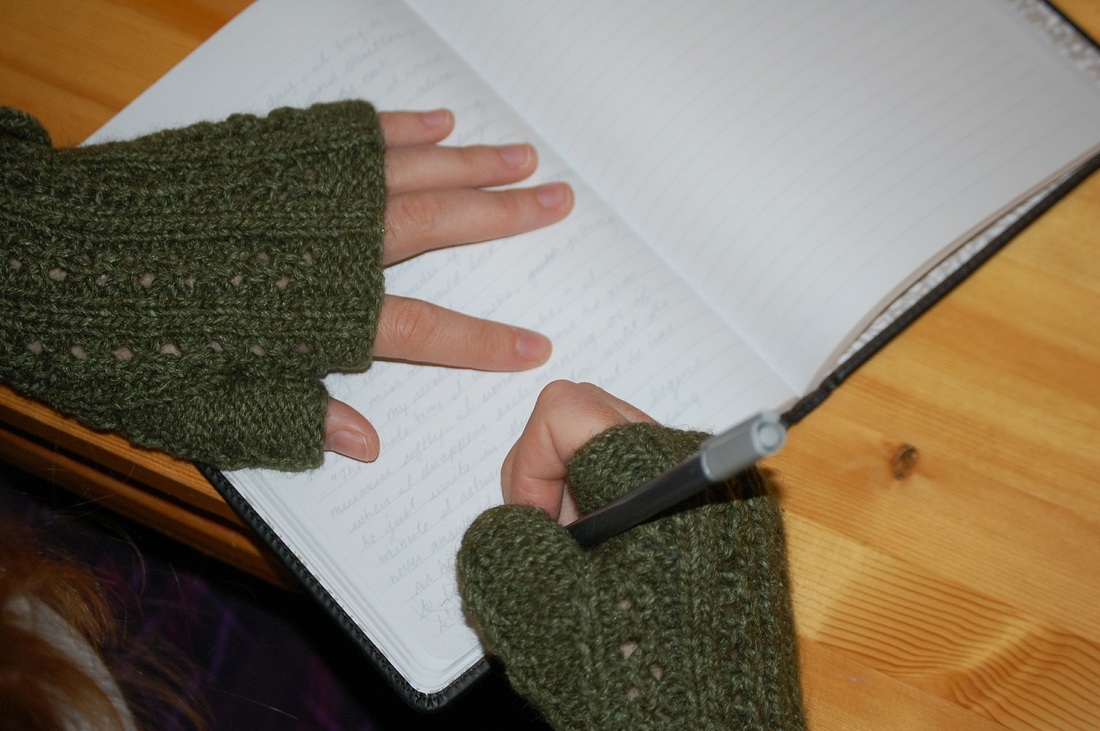 As a high school English teacher and a published author, I was ecstatic when given the opportunity to teach a creative writing class… but also terrified. Although writing is my passion, teaching creative writing seemed intimidating. How do you walk the fine line between giving helpful constructive criticism and squashing a child’s confidence? How do teach students to be truly creative, to free the restraints we tightly put in place in the traditional Language Arts classroom? I’m going into my third year of teaching creative writing, and I can say I haven’t completely mastered it. The beautiful yet daunting element of creative writing is you can never truly reach perfection. However, here are some tips and tricks I’ve picked up along the way to help your creative writing class be successful. 1.Model writing. If we want to teach our students to be fearless in their writing, we have to be fearless in our own writing. Try to participate in the activities you set before your students—then be willing to share your work. Students need to see you struggle, get excited, and open up about your own writing in order to understand the process. 2.Create an atmosphere of honesty. From day one, we talk about the value of honesty. Telling every student “great job” only cheapens their effort, their work, and the class. I teach proper critiquing etiquette in the first week so students understand the difference between constructive criticism and cruelty. They learn to be open with each other about what works and what doesn’t so we can all grow. 3.Push students out of their writing styles. We cover all genres in my classroom, including humor. Many students will be nervous about switching what they perceive as their genre, but encourage them to go outside of their comfort zones. Remind them it’s okay to fail at a genre. Also remind them that writing other genres can help them improve elements in their preferred genre; 4.Let students create prompts sometimes. Coming up with prompts can be exhausting. Once in a while, I throw the task to the students. I’ve found that when I’m out of creative ideas, they often can come through, creating challenging and engaging prompts. It also gives them a sense of ownership of the class.  5. Look for writing books to help you. Many creative writing books, in my opinion, are too stiff, formulaic, and the antithesis of creativity. However, there are some great books out there. Two of my favorites are Karen Benke’s Rip the Page!: Adventures in Creative Writing and Jennifer Traig’s Don’t Forget to Write for the Secondary Grades. 6.Read On Writing by Steven King. As a teacher, this book gives you great perspective from one of the most successful writers of our time. This book does have a lot of profanity, so it probably isn’t something you’d want to have your students read as part of the class. However, it gave me new perspectives on what I was teaching and has helped me help the students. 7.Incorporate non-writing, creativity building activities. You don’t have to write every single day to teach creative writing. Focus on the “creativity” part. Sometimes, we do challenging art projects or group games that enhance creativity. Think outside of the box with your lesson plans in order to help students think outside of the box with their writing. 8.Have free write Fridays. This year, Fridays will be days students can choose what project they work on, anything from a book, a story, a poem, or even improving the writing in an essay. Giving students ownership of their tasks helps them understand the value of what you are teaching. 9.Encourage students to keep journals. Sometimes great story ideas can come from journal writing. Encourage students to keep journals outside of the classroom for idea generation. 10.Create an outside audience once students are comfortable with sharing. Giving students an audience can make their writing feel more real. Invite in another class for a flash fiction reading. My students also wrote children’s books last year. We invited in students from the classroom for students with multi-disabilities to be our guests. 11.Always encourage students to look for the positives in writing before criticizing. Teach students that every piece of writing has a positive. This will help build confidence. 12.Examine writing of the greats.
Pull in pieces from a variety of writers, and encourage students to bring in pieces of writing that move them. 13.Talk about blogging. Even students who aren’t interested in publishing novels may be able to benefit from a discussion of creative non-fiction, especially with blogging. Open students’ eyes to the world of blogging and do mini-lessons on things like SEO, advertising, and guest blogging to show them new possibilities. 14.Teach students how to write for social media. Social media is the modern platform for writers. Teach students how social media can be a tool, no matter what your profession. Talk about best practices for different social platforms and discuss internet safety. Creative writing has so many different mediums; teach as many as you can. 15.Encourage knowledge of self. I encourage students to explore who they are through various activities. We talk frequently about how knowledge of self helps with knowledge of writing. Activities such as writing six-word memoirs help students evaluate who they are and how it impacts their writing. 16.Teach students to write on command. Many students complain that they cannot write at school; they only write at home. I make students write in class anyway. We talk about how expanding your writing atmosphere helps you grow as a writer. We also discuss how even if you scrap what you write in school, there may be some gems you can use. 17.Promote editing and rewriting. Real writers rewrite…and rewrite…and rewrite. I try to promote this ideal in my class. We use peer feedback to help fix issues in first drafts and to reveal weaknesses. 18.Connect with professionals in the field. Bring in writers of all genres and fields. Seeing professionals helps make the content of the class real. I recently signed up for some Skype classroom visits with authors. There are so many authors who will Skype with your students and answer questions. 19.Promote reading as a means of developing writing. Encourage students to read in addition to writing. All of the greats talk about how important it is to read if you want to be a great writer. Promote this ideal in your writing classroom. 20.Create group writing activities. We don’t always write as individuals. I encourage collaboration for certain activities. Students benefit from seeing other students’ great ideas and also their struggles. It promotes confidence and builds an atmosphere of comfort in the classroom. Above all, creating a space where students feel comfortable enough to write, share, explore, and even make mistakes is crucial for a successful writing class. I wish you all the best with your creative writing class and encourage you to share any tips you have found to be successful in the comments below! Lindsay Detwiler is a high school English Teacher and a published contemporary romance author. To learn more about her, check out her Facebook, her blog, and her Twitter page |
*As an Amazon Affiliate, I get a small fee for any books purchased through the links below.
Archives
May 2024
Categories
All
|
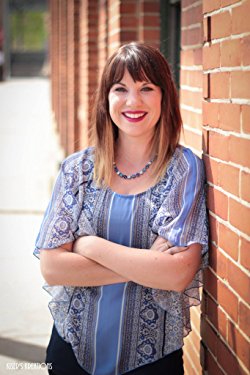

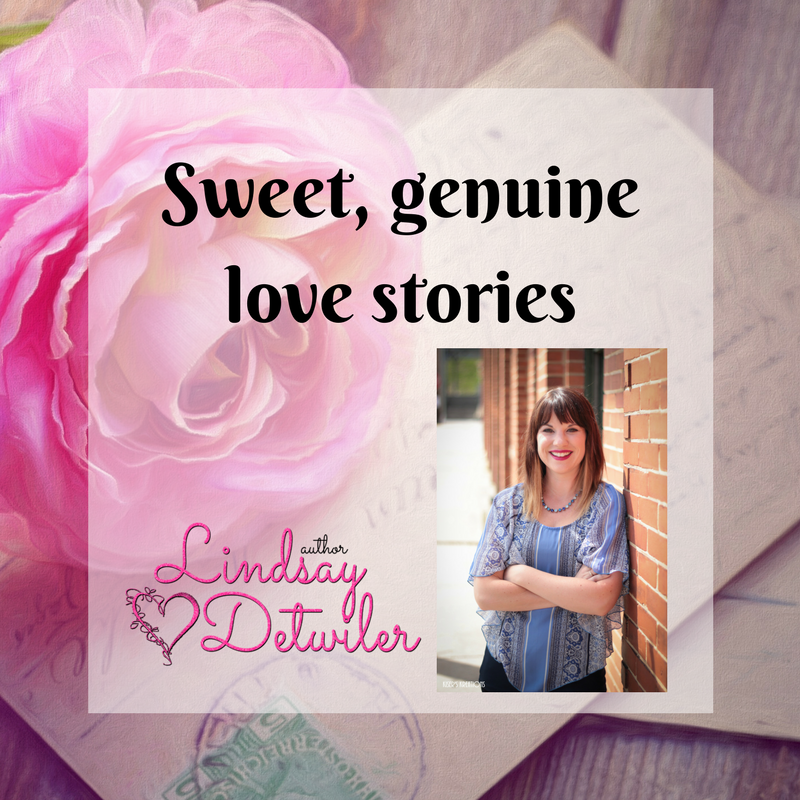
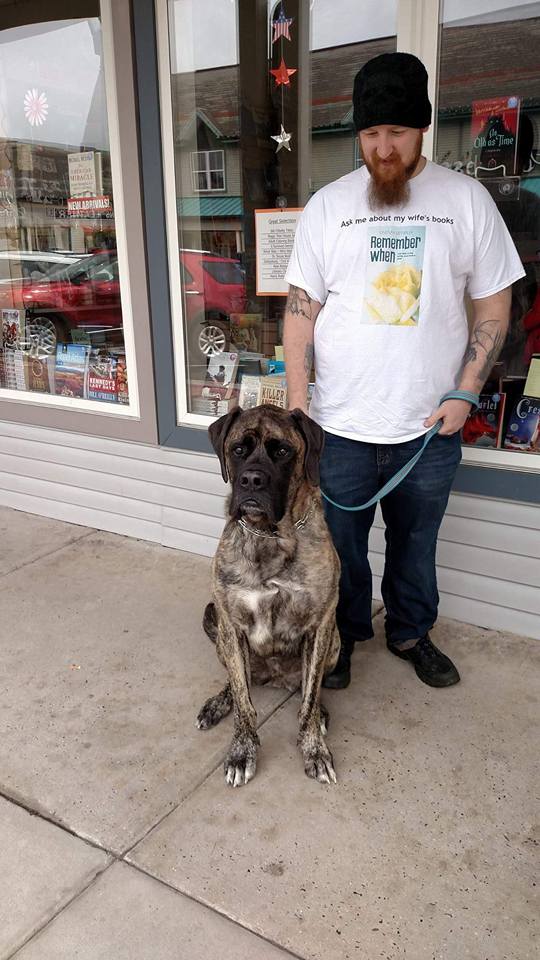
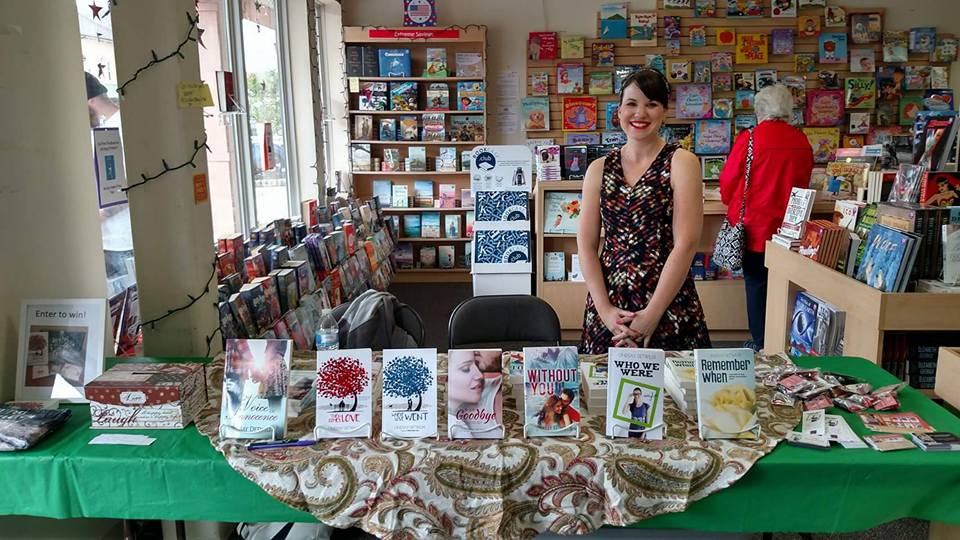
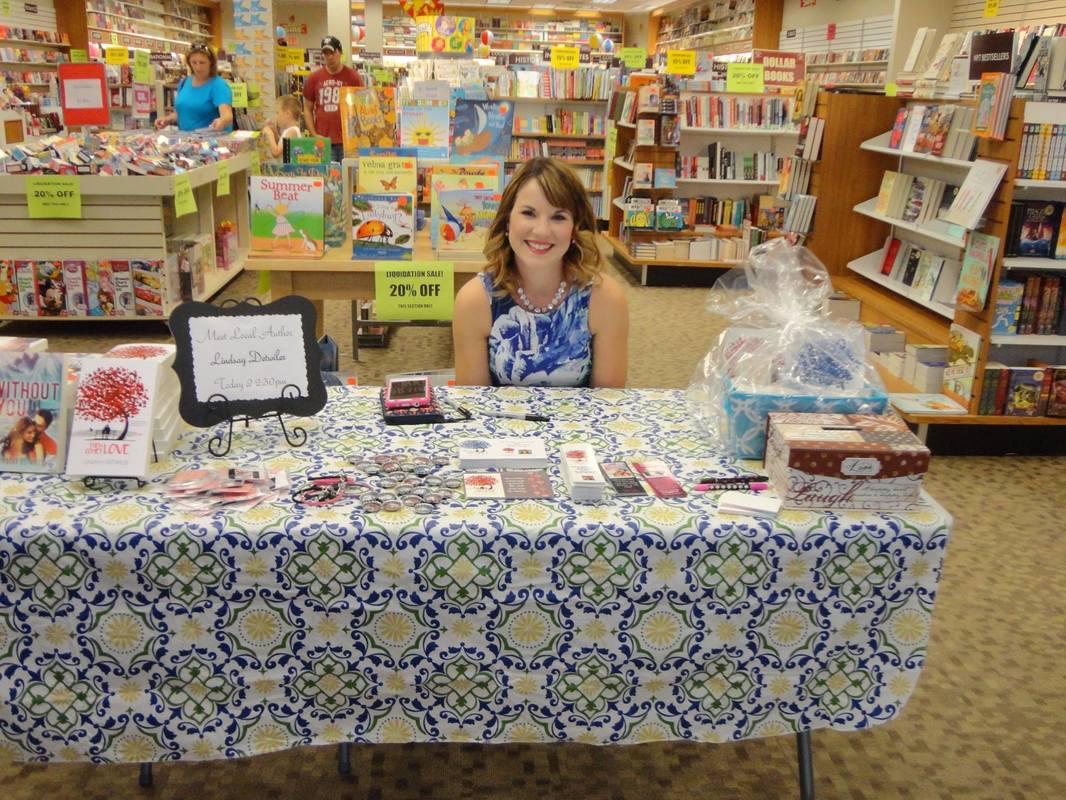
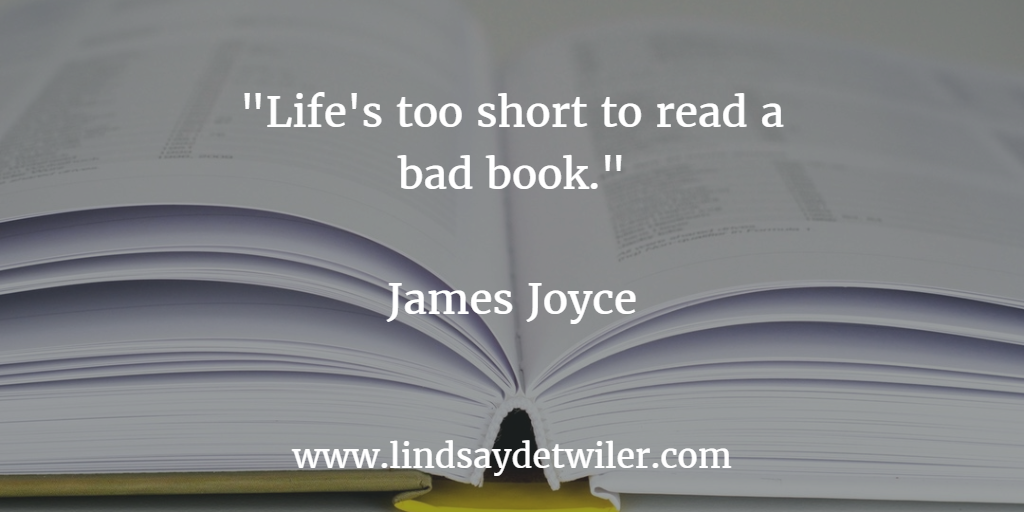
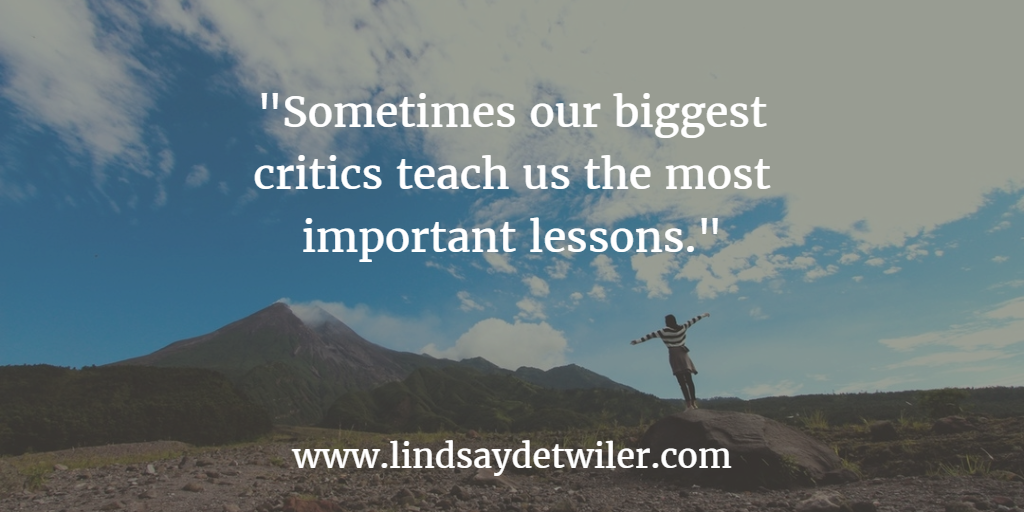











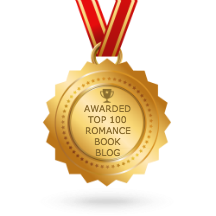
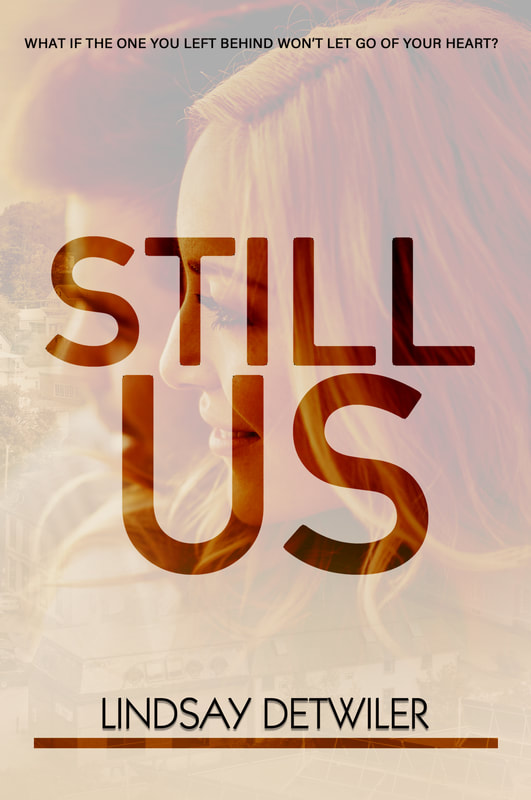

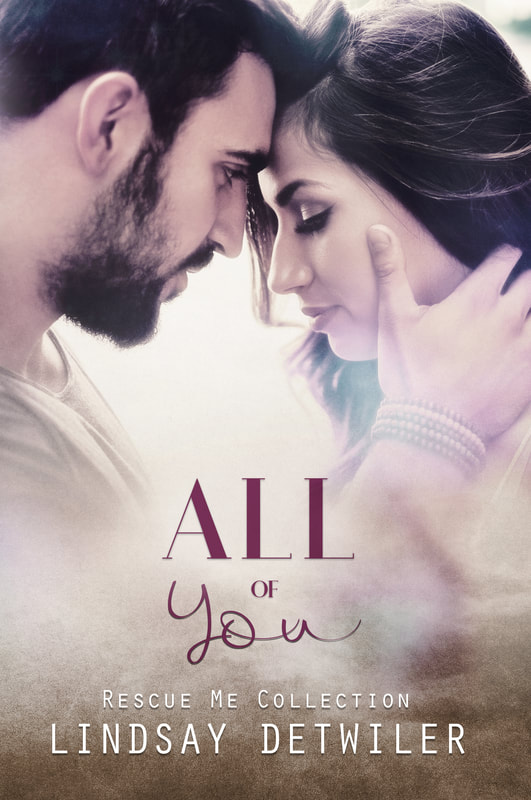

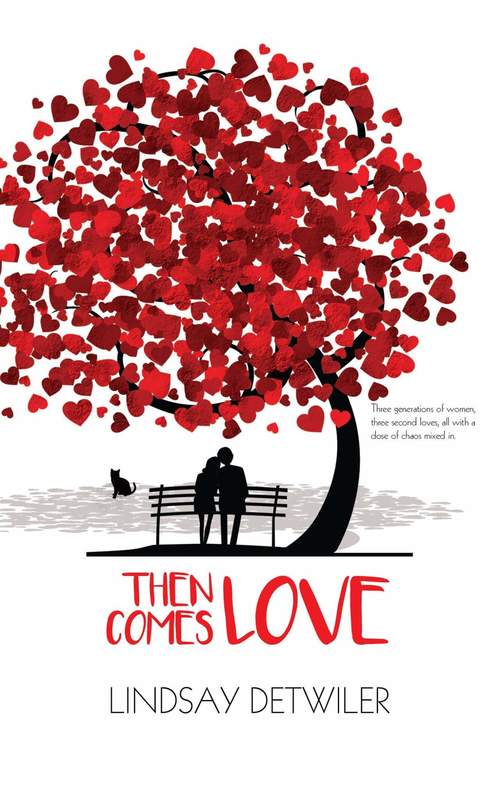
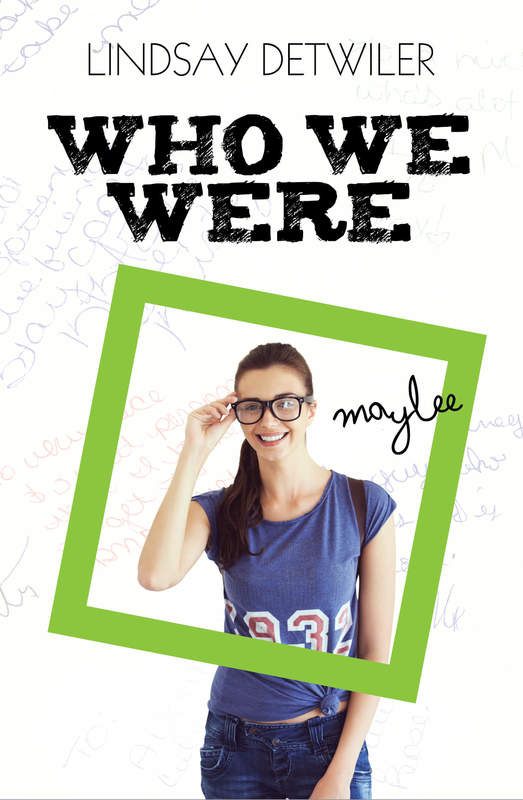
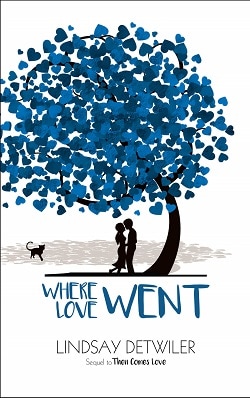
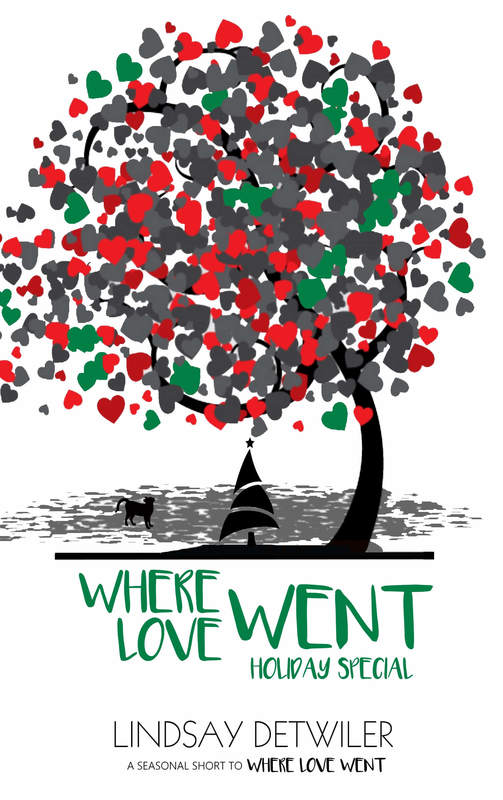
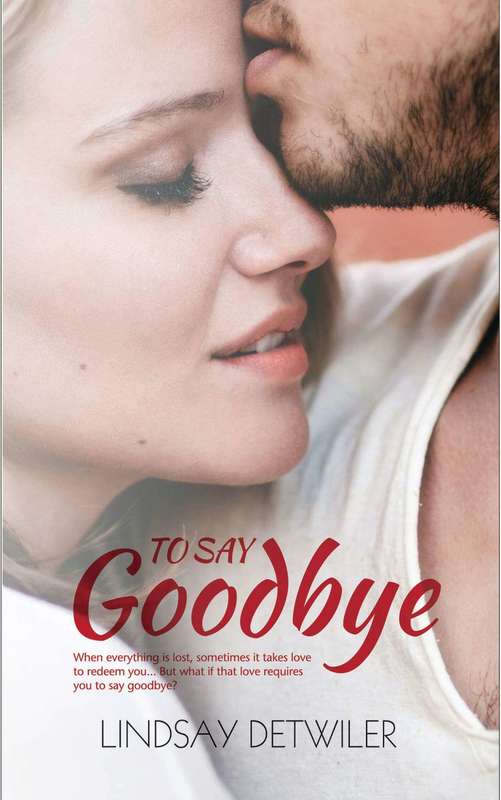
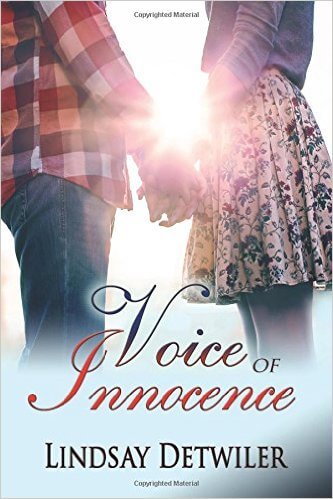
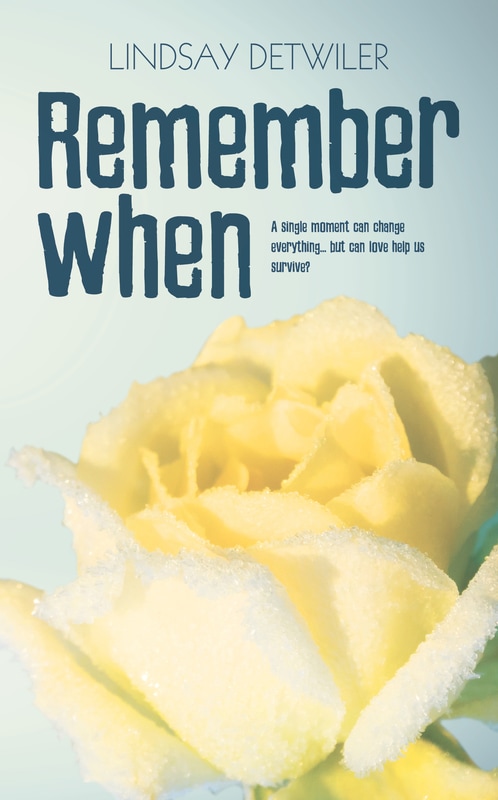
 RSS Feed
RSS Feed